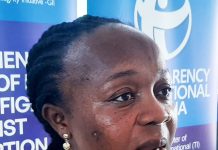Sarki Alhaji Abdullai Ali Barry, Asanteman Zongo Nkosuohene and Peace Ambassador, has recommended state engagement with statutory bodies, to consider some major reforms in the country’s prisons.
He said the proposed reforms, which must include the construction and expansion of infrastructure to decongest the existing prisons, should border on internationally accepted human rights provisions.
The recommendation, according to him, is to ensure that inmates are not abused or deprived of their fundamental human rights.
“Rather than congesting our prisons with “mild offenders”, it is feasible to amend prevailing laws so that such offenders are made to undergo non-custodial sentences”, he noted.
He lamented the situation where a sizable number of inmates are overcrowded in a small confinement, which usually attracts the spread of infectious diseases at the expense of the prisoner’s life.
Sarki Ali Barry’s proposal came at the launching ceremony at the Central Prisons in Kumasi of a book, “LIVING BEYOND STRIFE AND LIMITATIONS”, authored by Imam Abdul Rahim Alhassan, who shared his views as former prison inmate.
The Zongo chief, who purchased one of the books at GHc2,000 expressed concerns over the underfeeding and poor diet among inmates at GHc1.80 per day, describing it as very disheartening and called for urgent steps to address the canker.
He mentioned that if the prisons fail to reform inmates before they join the larger society, the peace and security would have been sacrificed for their regained freedom.
“History teaches that several people have found themselves in prison for crimes they did not commit and that depending on social circumstances, anyone could find him or herself in jail at any point in time either rightly or wrongly for several reasons”, he added.
He commended Abdul Rahim Alhassan for his determination to write the book under the severest condition and encouraged him not to be deterred by life challenges he had passed through.
Sarki Ali Barry appealed to families, organisations, other state institutions and the government to consider offering financial support to affected inmates after their release to eke out a decent livelihood.









